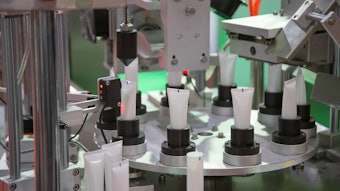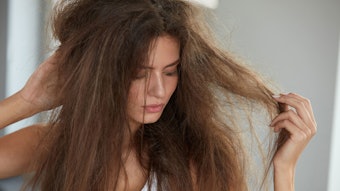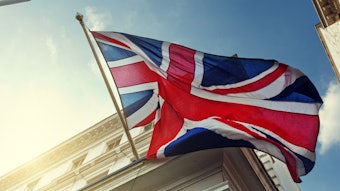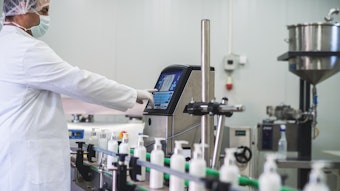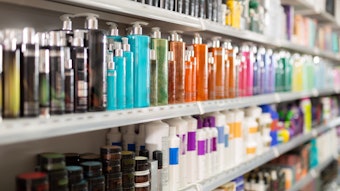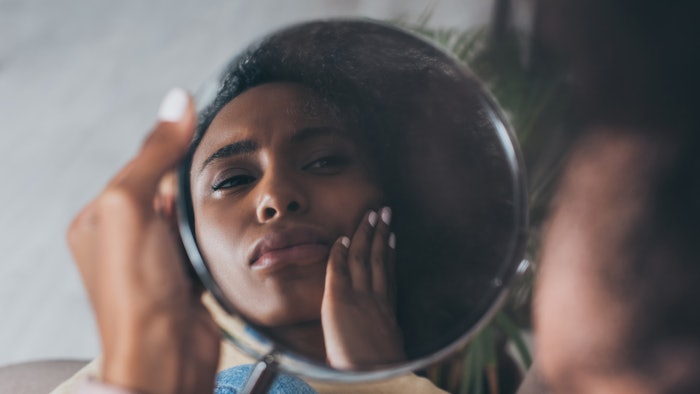
Beauty is a concept ingrained in human culture, yet it remains an evolving subjective notion. The media, as a powerful influence, perpetuates societal beliefs and values surrounding beauty. It has often emphasized youth and perfection, although more recently, attitudes have emerged supporting body positivity and self-acceptance.1
Log in to view the full article
Beauty is a concept ingrained in human culture, yet it remains an evolving subjective notion. The media, as a powerful influence, perpetuates societal beliefs and values surrounding beauty. It has often emphasized youth and perfection, although more recently, attitudes have emerged supporting body positivity and self-acceptance.1
Still, studies indicate there is a long way to go.2 Societal pressure, driven by idealized images portrayed in social media, continue to increase consumer dissatisfaction with their own physical appearance, negatively impacting self-esteem and psychological well-being.3
This article delves into the concept of mental and emotional beauty and its impact on individuals' self-perception. It then explores, through select examples, how cosmetic products and companies are transforming the psychological well-being of consumers.
Psychological Well-being and Self-esteem
As stated, sociocultural standards significantly influence self-perception and body image. The internalization of beauty ideals, such as perfect skin and facial beauty – as seen, for example, in often digitally altered images on social media – combined with constant comparisons, can lead to negative thoughts and shame and distress that significantly impact self-esteem and satisfaction with one's own appearance.4
Even as little as three minutes of such exposure can lead to negative mood changes with effects that extend beyond self-perception, affecting social and intimate relationships, daily activities and interpersonal communication.5 On the contrary, people who are more satisfied with their image tend to exhibit greater psychological well-being.6
Psychological well-being, as defined by Ryff's six-factor model,7 is closely tied to self-concept and self-acceptance. Self-esteem, a crucial component of well-being, is associated with happiness, self-confidence and a positive outlook on life. Given its strong connection to physical self-perception and body satisfaction, improving self-esteem through mental health interventions is paramount to self-care.
With the recent advent of self-care, the potential for personal care products to improve self-esteem and well-being has become more pronounced. Cosmetics have evolved beyond surface beautification to encompass more holistic hedonic, sensorial and emotional dimensions.8 Products, routines and rituals have been recognized to support relaxation, stress reduction, pleasure9 and even cognitive functioning, with efficacy substantiated by science.10
It is clear, as a prominent communicator of beauty standards, that the cosmetics industry can play an important role in transforming the negative societal messages described to enhance mental well-being, self-concept and self-esteem. Following are select examples of how the industry is doing this.
Supporting Self-kindness and Self-esteem
Nearly a decade ago, Dove promoted the campaign “Real Beauty Sketches: You Are More Beautiful Than You Think.”11 The notion of positive self-perception aimed to bridge the gap between how women view their own beauty and how it is perceived by others.
The campaign used an FBI-trained sketch artist who drew a woman's portrait based on her self-description and then a portrait based on a stranger's description of her – which was more open and beautiful. The Dove Real Beauty Sketches struck an emotional chord with millions of women who recognized that the biggest beauty pressure may come from the expectations they place on themselves.
Later, the Dove Self-Esteem Project brought in other initiatives to encourage women to embrace their unique beauty and to address the critical issue of self-image and well-being. Examples include collaborations with the Women's Dermatologic Society and the World Association of Girl Guides and Girl Scouts to build self-esteem-boosting programs. The goal of these initiatives is to help young people navigate the challenges of today's media-influenced world.
Partnerships such as these take the cosmetic industry’s holistic approach to beauty to the next level, extending its role to include nurturing positive self-perception, supporting mental well-being and empowering the next generation to embrace their true selves and feel confident in their own skin.12
Mental Beauty and the Inner Dialogue Shift
Skin care company Ayuna has pioneered the concept of “mental beauty” to shift the inner dialogue of consumers to essentially “think” their way to beauty. In research presented during the IFSCC 2023 Congress, the company described using transformation tools, including a mindfulness methodology adapted to cosmetic application and a gesture of empowerment to facilitate a shift in inner dialogue toward positive self-messages.7
Promoting self-acceptance, self-confidence and a positive self-image enhanced women’s mental well-being and counteracted the adverse effects of beauty standards on self-esteem and self-perception. According to the company, the approach is not only a bonus for individual well-being, but also a crucial step toward a more inclusive and mentally beautiful society. This research confirmed the hypothesis that daily cosmetic use can help confront and challenge internalized beauty standards that cause dissatisfaction.
Skin Neutrality and Self Worth
U.S.-based brand Selfmade emphasizes that beauty is a state of mind, underscoring the importance of emotional well-being as a bridge between mental and physical care. The company describes itself as an “emotional health company combining skin care with proven behavioral science to change the way [consumers] take care.”13
Selfmade’s pillars revolve around skin neutrality – i.e., the concept where skin is valued for what it does rather than how it looks. Skin neutrality acknowledges skin’s resilience and embraces its natural imperfections, including bumps, texture and lines. It draws on the field of psychodermatology, highlighting the profound connection between mental state and skin function. It also recognizes that skin concerns like dryness, inflammation, acne and sensitivity can serve as early signals of emotional discord, emphasizing the importance of holistic care.
The brand also delves into the science of self-worth, suggesting that people who feel worthy are more likely to see themselves as beautiful. The approach seeks to improve emotional intelligence and regulation to help consumers enhance skin health and overall well-being, and foster better decision-making, an increased sense of self-worth and positive emotional and mental state.14
Conclusion
A new era of science-backed mental and emotional empowerment has emerged that joins cosmetics with emotional well-being to promote positive self-perception. It emulates L’Oréal’s iconic 1973 slogan “Because I'm Worth It,” emphasizing the empowerment and self-worth of customers.15
This promising and potentially transformative chapter draws skin health and well-being closer to the realm of psychodermatology. It also demonstrates how, in a world driven by evolving beauty standards, the cosmetics industry can play an important role by fostering self-acceptance, self-confidence and genuine beauty from within.
References
1. Alleva, J.M. (2021, Nov 22). Why body-positive social media may be good for you. Psychology Today. Available at https://www.psychologytoday.com/us/blog/mind-your-body/202111/why-body-positive-social-media-may-be-good-you
2. Alle, J.-P., Naccache, B., Duval, M., Rocher, B. and Grall-Bronnec, M. (2021, Mar). Social media use and body image disorders: Association between frequency of comparing one’s own physical appearance to that of people being followed on social media and body dissatisfaction and drive for thinness. Int J Environ Res Public Health. Available at https://www.ncbi.nlm.nih.gov/pmc/articles/PMC8001450/
3. Pataky, C. (2021, Aug 18). The impact of social media use on body image and self-esteem. Love Discovery Institute. Available at https://www.lovediscovery.org/post/social-media-self-esteem-body-image
4. The Learning Network. (2022, Mar 31). What students are saying about how social media affects their body image. The New York Times. Available at https://www.nytimes.com/2022/03/31/learning/what-students-are-saying-about-how-social-media-affects-their-body-image.html
5. Castellanos Silva R, Steins G. (2023, March 8). Social media and body dissatisfaction in young adults: An experimental investigation of the effects of different image content and influencing constructs. Front Psychol. doi:10.3389/fpsyg.2023.1037932
6. Fahami F, Amini-Abchuyeh M, Aghaei A. (2018). The Relationship between psychological wellbeing and body image in pregnant women. Iran J Nurs Midwifery. doi:10.4103/ijnmr.IJNMR_178_16
7. Ramos, I. (2023). Mental beauty: The unexplored and positive impact of cosmetics on self- perception and psychological well-being. IFSCC 2023 poster PRB-134. Available (with login) at https://app.eventwo.com/ifscc2023#
8. Grabenhofer, R., Hettwer, S. and Foley, P. (2020, May 1). Expert opinions: Skin care and emotion. Cosmetics & Toiletries. Available at https://www.cosmeticsandtoiletries.com/research/consumers-market/article/21835754/expert-opinions-skin-care-and-emotion
9. Cosmetics & Toiletries. (2023, Mar 31). 15+ trends in cosmetics innovation at in-cosmetics global 2023. Available at https://www.cosmeticsandtoiletries.com/news/event-coverage/news/22793755/15-trends-in-cosmetics-innovation-at-incosmetics-global-2023
10. Tadokoro, K., Yamashita, T., … Abe, K., et al. (2022). Chronic beneficial effect of makeup therapy on cognitive function of dementia and facial appearance analyzed by artificial intelligence software. J Alzheimers Dis. Available at https://pubmed.ncbi.nlm.nih.gov/34924394/
11. Dove US. (2013). Dove Real Beauty Sketches | You’re more beautiful than you think (6 mins). YouTube. Available at https://www.youtube.com/watch?v=litXW91UauE
12. Dove UK. (March 27, 2019). Boosting self-esteem with the WDS – Dove self-esteem project. Dove. https://www.dove.com/uk/dove-self-esteem-project/our-mission/wds.html
13. Selfmade. (Accessed 2023, Nov 6). About. Available (in footer) at https://beselfmade.co/
14. Ibid Ref 8
15. Sharma, K. (March 9, 2021). From you’re worth it to stand up, how L’Oréal Paris’ communication has empowered women over the years. Business Insider. Available at https://www.businessinsider.in/advertising/brands/article/from-youre-worth-it-to-stand-up-how-loral-paris-communication-has-empowered-women-over-the-years/articleshow/81395810.cms
